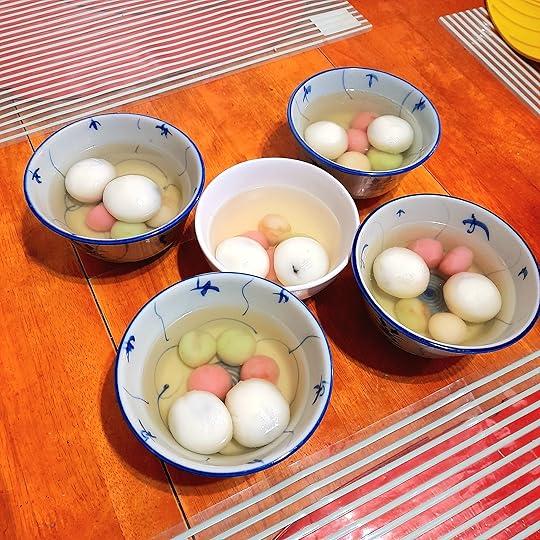Dong Zhi Festival
 Photo by Cats Coming on Pexels.com
Photo by Cats Coming on Pexels.comToday marks the end of the year for Chinese. It’s the day where family gathered around the round table, eat tang yuan (glutinous rice ball) and celebrated the winter solstice.
The Dongzhi Festival, also known as the Winter Solstice Festival, is an important celebration in Chinese culture, typically falling around year end/December (21st/22nd/23rd). Symbolizing the arrival of winter and the shortest day of the year.
(‘Dong’ as in Winter and ‘Zhi’ as in Arrival)
There’s a saying that, “Dongzhi is more important than Chinese New Year”. So, you know that Dongzhi is very important (my mom always reminded me of this). She would drag me along to buy ingredients for cooking and encourage those who were working to take leave and come home earlier.
Traditionally, Dongzhi represents a time for family reunions and the celebration of the year’s accomplishments while welcoming the forthcoming longer days that herald the return of light and warmth which we are still doing it till now (modern times).
We pai pai (pray) at the ancestor’s tablet at home, start cooking. We prepared the same dishes we usually eat during Chinese New year, chicken, duck, pork, fish, prawns, vegetables and steamed some preserved meats/sausage with arrowroot.
While cooking, waits for everyone to arrive. When everyone is gathered, we eat. And for dessert we have Tang Yuan, glutinous rice balls.
Every year we handmade them, it’s actually quite simple. We add some water to the glutinous rice flour and start kneading them (you can also add some coloring to it (pink/green)), enough until we can form balls with it. Traditionally, we wrapped some crushed palm sugar inside before boiling the glutinous rice ball in pandan and ginger soup. It’s really delicious too.
Some people opt for the more simpler solution, buying those pre-package ones, which comes in more flavors such as black sesame, peanut butter, red bean paste and others. There are other soups too we can use such as red bean instead of pandan and ginger soup (depending on the family’s preference).
Overall, it’s a day where the family take a day off work, gathered around and shared a good meal together, warming themselves up with some delicious Tang Yuan and shared stories (at least here in Malaysia, with me and my family).
It’s less hectic compared to the Chinese New Year, so it’s when the family actually has more time to lean back and enjoy a holiday.
Sources :
https://www.chinahighlights.com/festivals/mid-autumn-festival-story.htm
https://eresources.nlb.gov.sg/infopedia/articles/SIP_804_2005-01-13.html
https://macaulifestyle.com/culture/heritage/lovers-revolutions-stories-mooncake/



